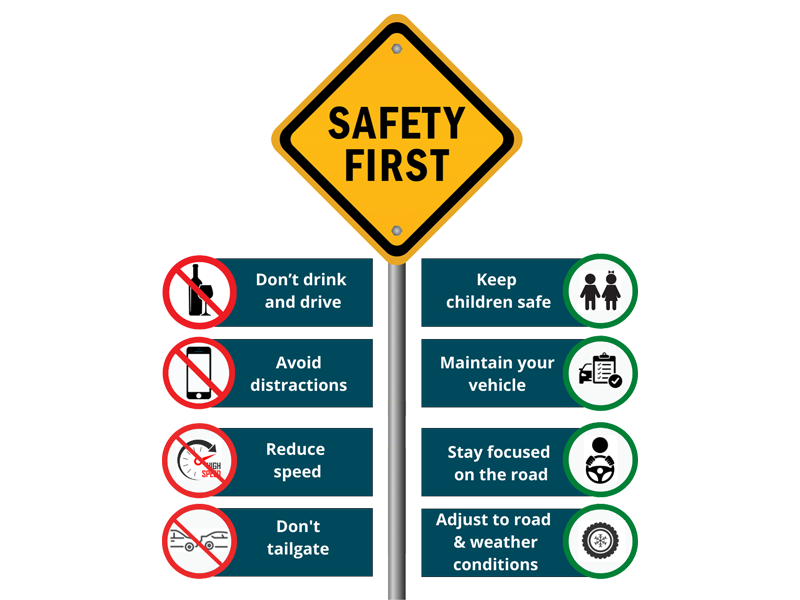If you’re planning on driving, avoid drinking alcohol. Drink driving is not only illegal, but it can cost you the safety of you and others. Many of the functions that we depend on to drive safely are affected when we drink alcohol. Alcohol slows down our reflexes and ability to react promptly enough to changing situations. Read our guide to learn how alcohol can slow you down and affect your body’s responses making your driving unsafe, and our tips on how to avoid putting yourself and others at risk of accidents.
19th November 2021
Road Safety Week 2021 – celebrating road safety heroes

It’s Road Safety Week 2021!
Road Safety Week is an annual road safety event organised by Brake. It stresses the importance of making journeys safe and healthy, every day. This year’s theme is Road Safety Heroes, celebrating the work of road safety professionals and explaining how we can all play a part in making journeys safer for everyone.
With this in mind, we wanted to share some of our tips to keep you and others safe on the road.
Mobile phones are a constant in most of our lives. But there’s one place where you certainly shouldn’t be calling, texting, tweeting or anything else and that’s in your car. Although using your mobile phone whilst driving is illegal, it has become a huge safety issue for many drivers. Texting, taking pictures, scrolling or playing video games takes your attention away from the road which can make you more vulnerable to get involved in an accident. If you can’t ignore a phone call or a text, pull over to a safe location before answering.
Fatigue is a major contributory factor in crashes in the UK, with too little sleep radically affecting driver attention, awareness, reaction time and ability to control the vehicle. Driving tired can be as dangerous as driving under the influence – it slows down your reaction and decreases your awareness. Read our guide for tips on how to avoid falling asleep at the wheel.
Speeding is another major contributor to road accidents. It can affect the safety of you and others even if you are driving at the speed limit but in an area where the road conditions are not appropriate e.g. bad weather, road being under maintenance or if there is little visibility. The faster the vehicle is moving, the more difficult is to stop, which decreases your ability to avoid an unexpected hazard.
Driving too close to the vehicle in front of you can be a dangerous habit. For example, if the vehicle stops suddenly and you are too close, you will not have enough time to react. Keeping a safe distance is highly recommended at any time. Always try to keep a 2 seconds gap between you and the vehicle in front, and at least 4 seconds in bad weather or road conditions.
Road traffic accidents involving child pedestrians are common, as children under age of 16 are one of the most vulnerable road users.
Accidents are preventable and we all have a part to play in, so here we share some of the safety tips on how to protect children on the road.
It’s important to make sure that your vehicle is in good condition. To avoid vehicle breakdown and costly repairs, vehicle walk around check is highly recommended.
Driving a van? Read our guide about the daily checks that you should carry out inside and outside your van to make sure it’s roadworthy.
- Tyre safety
Poorly-maintained tyres can affect your car’s efficiency and performance, as well as having serious safety implications too. Read our guide for top tips to help get the most from your tyres.
- Vehicle overheating
Overheating can cause serious engine damage and increase the risk of an accident, so it’s important to pull over quickly to a safe place if the coolant temperature warning lights up.
Find out more about the dashboard warning lights which you shouldn’t ignore if they stay on your dashboard whilst the engine is running.
Planning your journey in advance is important as it allows you to reach your destination by choosing the best route possible and avoid unforeseen road closure.
Keep in mind the weather conditions, and plan ahead your stops if you are going on a long journey. Take regular breaks and get enough sleep before getting behind the wheel to prevent drowsy driving.
Find out more about our Winter Driving tips.